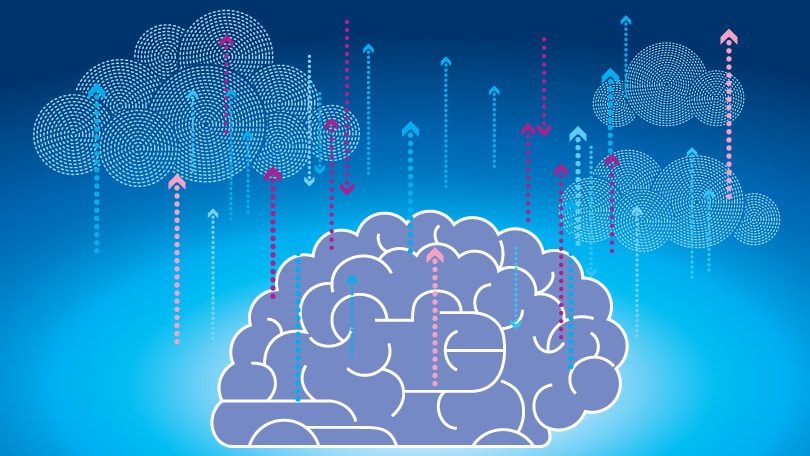How AI-Powered Knowledge Bases Facilitate Continuous Learning?
As soon as the concept of AI first appeared, people were dazzled by its potential. Many experts were curious about the limits of self-learning robots while predicting a future where humans are no longer a necessity.
Although we’re far away from this dystopian prediction, the truth is that AI technology has surprised even the biggest skeptics. The potential is definitely there and it only remains to be seen how far these systems will progress without human assistance.
Following this global trend, software companies have started tinkering with AI and databases. By utilizing this concept, businesses can create repositories that include millions and millions of valuable data. The best thing yet is that, unlike traditional databases, these new systems can learn from human inputs and update their content over time.
In this article, we’ll examine how AI-powered knowledge bases can facilitate continuous learning and how your company can benefit from them.
AI databases vs. traditional databases
For the most part, the concept of an AI-powered database builds upon traditional databases. Within such a knowledge base, you can find all sorts of information in the form of articles, FAQs, decision trees, metadata, multimedia, structured data, and so on.
Like any AI-powered system, these knowledge bases have a high understanding of human language through natural language processing. In fact, this is the main reason why they’re so efficient and can deliver relevant insights to users. By understanding the context behind every question, these systems can provide much more relevant answers to users.
This flexibility is the main thing that separates the two. While traditional databases rely on information stored within it, modern AI knowledge bases can evolve over time. They can learn from every interaction, slowly improving the outputs.
How do AI databases learn?
Saying that databases (or any other artificial systems) can learn is a bit farfetched. Instead, they utilize tailor-made algorithms and large data sets to extrapolate information and notice patterns. By establishing correlations between different data points, they can draw their own conclusions, that is, learn.
Specifically, AI utilizes a concept known as machine learning. Through it, these systems can accomplish all sorts of goals ranging from image recognition to language processing. Unlike humans, who learn from their experiences, AI databases rely exclusively on data.
Although this has its benefits, it can also be a curse. In other words, AI databases often don’t have enough flexibility and can easily be manipulated by anyone who wants to lead down the wrong path. This phenomenon is especially noticeable when these systems encounter unique situations. As they don’t have enough data or experience, they can’t adapt quickly enough and might provide wrong answers.
Regardless of certain drawbacks, AI can still provide unbiased opinions about different topics. Unlike humans, these systems are devoid of emotions, seeing the world as either white or black. Furthermore, they’re much better at adopting new data, thus providing more relevant information to end users.
5 Benefits of AI-driven knowledge bases
AI-powered knowledge bases are a major leap forward compared to traditional databases. Besides improving productivity and reducing costs, these systems can also mitigate various risks. That being said, here is a breakdown of the different benefits you’ll experience when using them:
1. Optimal customer service
No matter what, you can always be certain that an AI database will deliver an optimal user experience. Unlike traditional databases, these systems update information over time, with minimal human involvement, ensuring that content is always relevant.
Furthermore, they’re also much more efficient than human support teams as they’re available all the time. AI knowledge bases also provide more consistency, giving users the same answer every time. This makes them much better than large human teams, where answers might vary depending on who you ask.
2. Faster resolutions
The consistency and easy data retrieval make AI databases much faster than human teams and traditional databases. Given that these programs are available all the time, users can gain answers as soon as they type them into a box. There’s no more need to wait for employees to become available, as you can resolve your problems immediately.
On top of that, AI databases also provide faster resolutions than traditional databases. They can answer more questions as they better understand complex human language and its nuances.
3. Faster onboarding
Besides helping customers, knowledge bases are also vital during onboarding. All company trainees can access the same data from various devices, ensuring consistent transfer of knowledge. Even better, artificial intelligence continuously updates itself, thus providing much more relevant information to users.
4. Streamlined data
One of the biggest issues with any electronic system is how it presents the same information across different channels and platforms. There’s also a problem with formatting, which can make certain data unusable or simply different.
AI can fix all these issues by providing the same info across the board. That way, different departments can utilize the same insights as if they’re working from the same room.
5. Better analysis
Due to the previously mentioned streamlining, it’s much easier to categorize and interpret data regardless of their sources. In other words, companies find it easier to derive metrics like average call duration, wait time, and drop rates. Businesses can use this information for their decision-making processes and to carve a spot on their respective market.
Conclusion
For many companies, adding AI into standard databases is a sight for sore eyes. These new systems can resolve many deficiencies of past products, significantly increasing productivity, reducing errors, and increasing customer satisfaction. Besides helping with onboarding and training, these knowledge bases have become a vital part of customer support workflow.Although there are many things to be desired, software companies are constantly providing better and better solutions. So, we can expect that these digital products will slowly be utilized for other, even more exciting purposes. Here’s an example of how AI knowledge bases can help your company as well!


























